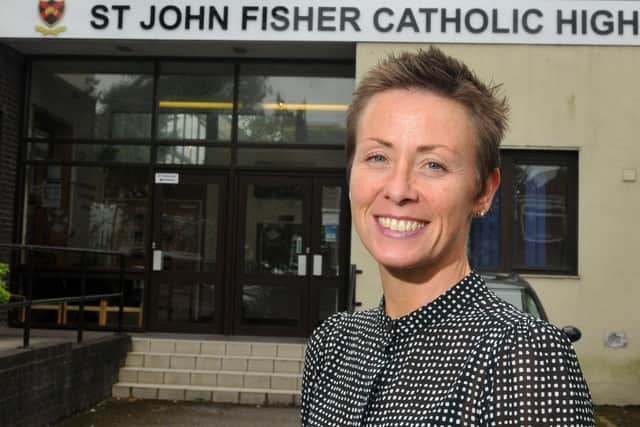Wigan headteachers forced to slash spending amid concerns about budgets
and live on Freeview channel 276
Alison Rigby, who runs St John Fisher Catholic High School in Beech Hill, said she could only set the budget for 2021-22 by reducing spending in the previous year and securing extra money.
The problem looks set to get worse in future years, both at St John Fisher and other schools in the borough.


Advertisement
Hide AdAdvertisement
Hide AdShe said: “In setting our 2021-22 budget we had to make significant cuts across the board to balance the budget, and this was only achieved by curtailing discretionary spending in the final quarter of ’20-’21 to generate sufficient balances to support the budget in ’21-’22 and securing additional funds from the local authority to support our disproportional SEND numbers.
“We prepared forecasts for 2022-23 and 2023-24 at the same time, which revealed that we are likely to be in deficit in 2022-23 and significantly in deficit in 2023-24. I think this is reflective of the situation across most high schools in Wigan. ”
She has spoken out as school leaders’ union NAHT released the regional results of a survey of its members on school funding.
Responses showed more than a third (35 per cent) had already had to make cuts to balance their budgets, and 35 per cent predicted they would be forced to make cuts this year.
Advertisement
Hide AdAdvertisement
Hide AdMore than a fifth (23 per cent) of school leaders predicted a deficit budget in 2021-22 based on current funding levels.
Among the issues raised by school leaders was funding for pupils with special educational needs and/or disabilities (SEND) being insufficient, while they also had to pay the costs associated with maintaining coronavirus safety measures and supply cover, as a direct result of the pandemic.
Mrs Rigby said: “The major problem schools are faced with is uncertainty over funding levels going forward.
“The annual increases in funding received rarely keeps pace with general inflation which means year on year the school has to find additional savings to balance the budget.
Advertisement
Hide AdAdvertisement
Hide Ad“Planning would be easier if the Government could provide a three-year indicative budget that schools could work to.
“Every three years the school faces increases in superannuation contributions and this year we are faced with finding additional savings to cover the Government’s increased national insurance contributions we will have to make.
“If the Government could give us assurances that all future pay awards that they agree with the negotiating bodies for staff employed in school were to be fully funded, this would go a long way to removing uncertainty in the budget process for schools.
“Top-up funding for SEND pupils is totally inadequate and needs urgent review as they have complex needs that require additional support beyond the funding provided which place great demands on schools.
Advertisement
Hide AdAdvertisement
Hide Ad“Maintaining coronavirus safety, especially the additional cleaning costs and supplies required to operate safely, seem to have been ignored by the Government after the original surge.
“Finally, there needs to be significant uplift in the per pupil funding for schools to address the demand for counselling and other pastoral care required for pupils after the Covid lockdowns.”
Paul Whiteman, NAHT general secretary, said: “The Government’s failure to invest in schools in the North West and across the country over the past decade is forcing school leaders to cut back on staff, support for pupils and activities that enrich the school day. It is clear that school budgets in the region remain under enormous pressure.
“The evidence is very clear that by 2023 school funding will still be lower in real-terms than it was in 2010.
Advertisement
Hide AdAdvertisement
Hide Ad“Given the additional demands on schools, including the challenge of responding to Covid-19, that is not a sustainable position and will lead to further cuts in schools becoming unavoidable. Our research shows that already almost a third of school leaders in the North West are being forced to make cuts in 2020-21.
“What we are seeing here is a combination of long-term under-funding and additional pressures caused by the pandemic.”
A Department for Education spokesman said: “This government is providing the biggest uplift to school funding in a decade – £14 billion in total over the three years to 2022-23. This includes a £7.1 billion increase in funding for schools by 2022-23, compared to 2019-20 funding levels.
“Next year, funding through the schools national funding formula (NFF) is increasing by 2.8 per cent per pupil compared to 2021-22.
Advertisement
Hide AdAdvertisement
Hide Ad“The NFF continues to distribute this fairly, based on the needs of schools and their pupil cohorts.”
Thanks for reading. If you value what we do and are able to support us, a digital subscription is just £1 for your first month. Try us today by clicking here
